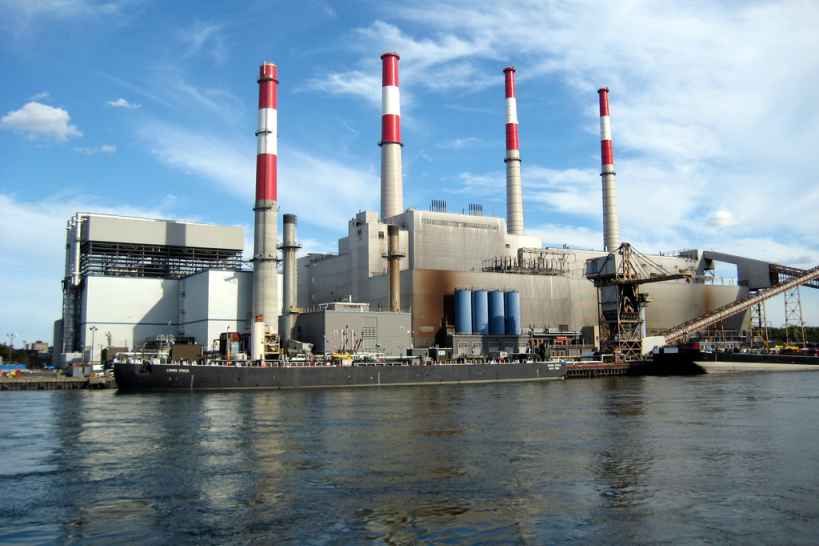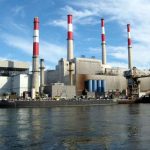NYSERDA Announces Up to $4 Million Available to Develop the Next Generation of Heating, Ventilation and Air Conditioning Systems for Buildings

Four Innovation Challenges Will Help Increase Energy Efficiency in New York’s Buildings
Supports Governor Cuomo’s Nation-Leading Green New Deal and New Efficiency: New York’s Energy Efficiency 2025 Target of Reducing On-site Energy Consumption by 185 TBtus
The New York State Energy Research and Development Authority (NYSERDA) today announced the availability of up to $4 million as part of its Next Generation Innovation Challenges designed to bring pioneering solutions to the marketplace for heating, ventilation and air conditioning (HVAC) systems for buildings. Today’s announcement supports Governor Andrew M. Cuomo’s Green New Deal – the most aggressive climate and clean energy program in the nation – and New Efficiency: New York’s 2025 energy efficiency target of reducing on-site energy consumption by 185 TBtus.
Alicia Barton, President and CEO, NYSERDA, said, “To meet Governor Cuomo’s nation-leading clean energy targets, we must think outside the box by incorporating new, innovative technologies into our building stock to drive down energy demand and reduce harmful emissions. The Next Generation Innovation Challenges will provide companies with support to develop New York’s next generation of HVAC technologies to help us increase energy efficiency and reduce greenhouse gas emissions to address some of our most pressing environmental and energy issues.”
The Next Generation Innovation Challenges support clean energy companies that want to develop, commercialize and demonstrate new technologies for HVAC systems. The program aims to improve the performance of advanced HVAC systems and create new economically viable opportunities for energy efficiency in buildings. This round of funding focuses on the following four innovation challenges:
- Advanced Heat Pumps: Proposals should focus on developing and commercializing new classes of heat pumps that will operate efficiently in cold climates. There is specific interest for products that can provide space heating, cooling and domestic hot water as well as those that expand the use of mini-split heat pumps to applications currently served with package terminal heat pumps. The products must be suitable for single family homes, multifamily buildings, hotels, and commercial buildings.
- Efficient Thermal Distribution: Proposals should focus on innovative solutions to improve the performance of forced air, hydronic distribution, and steam distribution systems, split-system heat pumps, or new innovative solutions for efficient thermal distribution.
- Technology Transfer to the New York Market: Proposals should identify advanced HVAC products commercially available outside the U.S. that could be transferred to the New York State market. Transfer activities could include development activity to adapt the technology for the New York market, technology demonstration, market research, partnering with New York entities, and/or manufacturing assistance.
- Energy Pods: Proposals should focus on integrating the heating, cooling, ventilation, dehumidification and domestic hot water needs of a dwelling unit into a compact form and designed to serve individual units. Proposers will either develop the technology or adapt foreign products for use in the New York market. This challenge is seeking a protype capable of entering production for the next round of the RetrofitNY program and scaling to subsequent rounds. RetrofitNY is a first-of-its-kind program in the U.S. to create standardized, scalable deep energy-efficient retrofit solutions that can be replicated throughout the entire housing industry.
NYSERDA will accept concept papers focusing on any of the four innovation challenges through December 12, 2019. After the concept papers are reviewed, through a competitive process, NYSERDA will request the top-rated concept papers to submit follow-up proposals. The proposals selected will receive funding to move forward with their projects. In addition, NYSERDA will host a webinar for interested applicants on Tuesday, October 29, at 10:00 a.m. Visit NYSERDA’s website to participate (no pre-registration is required).
This is the fourth round of NYSERDA’s Next Generation HVAC Challenges. Launched in 2017, more than a dozen feasibility studies, product development and demonstration projects have already been funded and are underway such as:
- Therm Controls, Inc. is developing a network connected device that controls the heat output of individual radiators in multifamily buildings. The product enables room level temperature control while increasing energy efficiency for the building.
- MIMiC is working with a team at Rensselaer Polytechnic Institute to develop and test an inexpensive, high performance solid-state thermoelectric heat pump system for both heating and cooling that will provide the efficiency of a modern heat pump without the use of any refrigerants . Based on a unique concept of cascading thermoelectric heat pumps, MIMiC aims to demonstrate the technical and commercial feasibility of a refrigerant-free compact heating and cooling system.
- The Levy Partnership is demonstrating how air-source heat pumps and multiple space conditioning systems can use an integrated control system to increase energy efficiency and improve performance of all heating and cooling systems.
- Dandelion Energy has developed a suite of drilling equipment to make geothermal installations quicker and more affordable, going from approximately one week to one day. The new system is being used at dozens of homes in New York and expects to reduce costs by about 50 percent for homeowners.
- Steven Winter Associates is working with a New York State manufacturer to design and demonstrate a new system for individual heating and cooling units in hotels and multifamily buildings which will be more energy efficient and reduce operating costs. This system is expected to reduce greenhouse emissions by 20 percent or more compared to conventional systems.
- Phase Innovation is developing a unique approach for air conditioning systems that could reduce outside ventilation air by 50 percent and reduce energy consumption by 15 percent. Once a prototype is developed it will be evaluated and demonstrated to test the feasibility of this air conditioning approach for New York State buildings.
Additional projects include those that could help heat pumps perform better in colder temperatures, are creating new heating and cooling systems for commercial and residential buildings that are more energy efficient and cleaner, are increasing the efficiency of air conditioning units, are integrating HVAC with energy storage systems and projects which have the potential to reduce costs for homeowners and building owners. In total, $15 million has been made available for four rounds of challenges to encourage private investment and advance the next generation of HVAC systems for buildings.
Buildings are responsible for 30 percent of carbon emissions from fuel combustion alone, when adding in the electricity needed to provide buildings with energy, that number climbs to 45 percent. By improving energy efficiency in buildings, the state will continue reducing its carbon pollution and achieve the state’s New Efficiency: New York target of reducing on-site energy consumption by 185 TBtu by 2025, the equivalent of powering 1.8 million homes.
Funding for this initiative is available through the State’s Clean Energy Fund. More information about the funding is available here.
About the Clean Energy Fund
The 10-year, $5.3 billion Clean Energy Fund (CEF) is a core component of New York State’s Reforming the Energy Vision strategy to achieve a clean, resilient and affordable energy system for all New Yorkers. The CEF includes a focused effort to bring more clean energy opportunities and benefits to low- to moderate-income communities and is designed to deliver on New York State’s commitment to accelerate the use of clean energy and energy innovation and drive economic development, while reducing ratepayer collections. NY Green Bank, a core component of the CEF, has generated $59.8 million in positive net income as a result of $737.6 million in investments in clean energy transactions across New York. The $1 billion NY-Sun initiative has already helped facilitate a nearly 1,700 percent increase in solar deployment since 2011. The CEF supports the proposed increase in New York’s Clean Energy Standard requiring 70 percent of the state’s electricity to come from renewable energy sources by 2030 as part of Governor Cuomo’s nation-leading Green New Deal.
About NYSERDA
NYSERDA, a public benefit corporation, offers objective information and analysis, innovative programs, technical expertise, and funding to help New Yorkers increase energy efficiency, save money, use renewable energy, and reduce reliance on fossil fuels. NYSERDA professionals work to protect the environment and create clean-energy jobs. NYSERDA has been developing partnerships to advance innovative energy solutions in New York State since 1975. To learn more about NYSERDA’s programs and funding opportunities, visit nyserda.ny.gov or follow us on Twitter, Facebook, YouTube , or Instagram.

